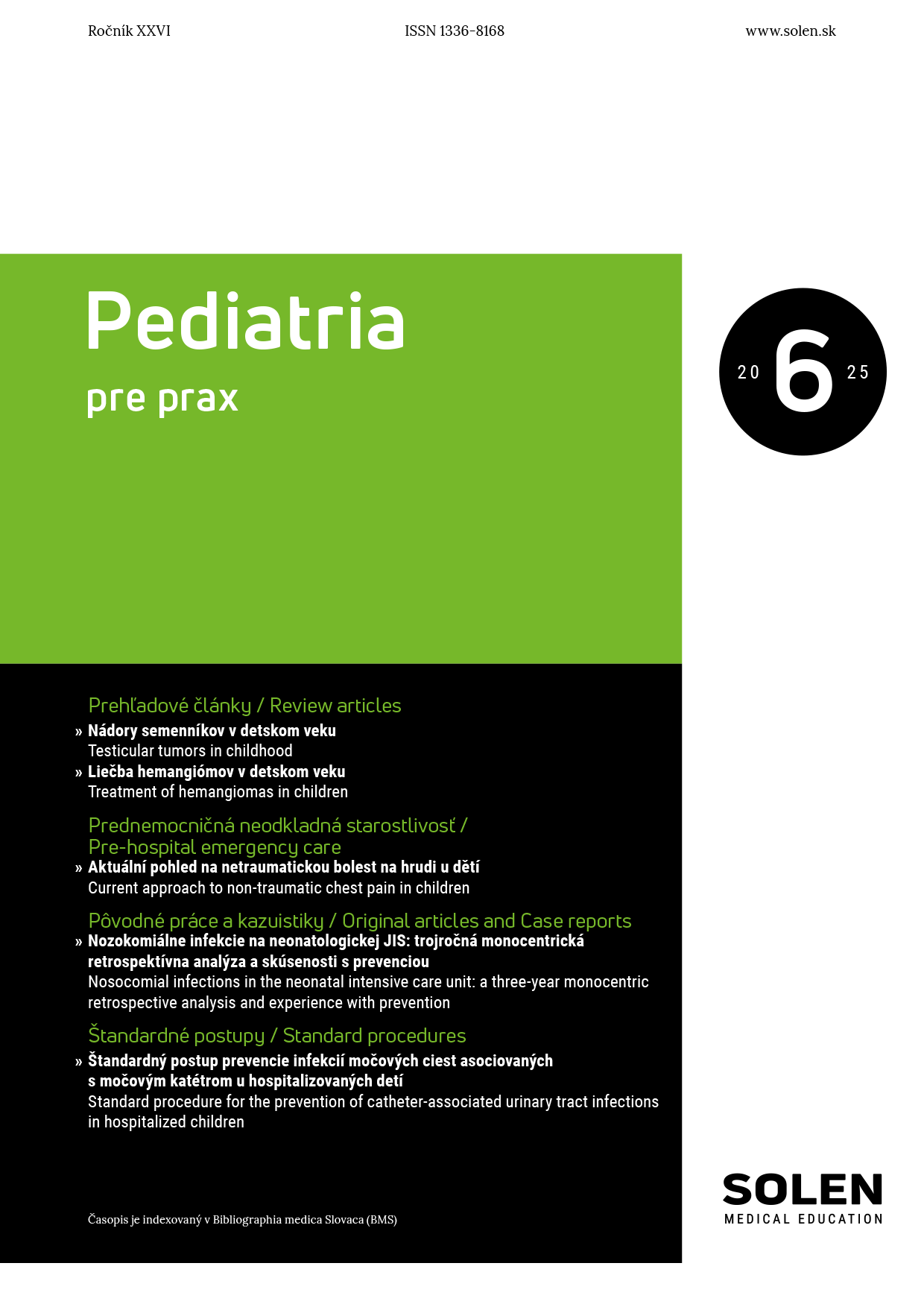Onkológia 4/2014
Ras gény metastatického kolorektálneho karcinómu
Monoklonové protilátky proti receptoru epidermálneho rastového faktora (anti-EGFR moAbs) sú štandardnou súčasťou liečby metastatického kolorektálneho karcinómu. Aktivujúce mutácie v génoch K-ras a N-ras predstavujú prediktívne markery rezistencie na liečbu týmito protilátkami. Úloha jednotlivých Ras proteínov pri vzniku a progresii kolorektálneho karcinómu je napriek ich vysokej štrukturálnej homológii odlišná. Hoci onkogény Ras boli objavené pred viac ako 30 rokmi, neustále sa zisťujú nové poznatky týkajúce sa ich štruktúry, regulácie a inhibície. Pochopenie presnej funkcie Ras génov v karcinogenéze tak môže viesť nielen k zlepšeniu stratifikácie cielenej skupiny pacientov, ale aj k vývoju efektívnejšej cielenej liečby.
Kľúčové slová: metastatický kolorektálny karcinóm, cielená terapia, Ras onkogény
Ras genes of metastatic colorectal carcinoma
Monoclonal antibodies against the epidermal growth factor receptor (anti-EGFR moAbs) are components of standard treatment for metastatic colorectal cancer. Activating mutations of the K-ras and N-ras genes represent predictive markers of resistance to anti-EGFR treatment. Despite their high structural homology, individual Ras proteins have distinct roles in development and progression of colorectal cancer. Although Ras oncogenes have been discovered more than 30 years ago, new information about their structure, regulation and inhibition is emerging constantly. Understanding the precise function of Ras genes in carcinogenesis so can lead not only to improved stratification of targeted patient population, but also to the development of more effective targeted therapy.
Keywords: metastatic colorectal cancer, targeted therapy, Ras oncogenes.

















